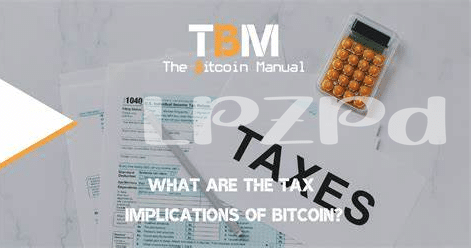What Is Capital Gains Tax? 💰

Capital gains tax is a tax imposed on the profit made from the sale of certain assets. Specifically, it applies to the gains realized from the sale of investments like stocks, real estate, and cryptocurrencies. When you sell an asset for more than you paid for it, that profit is considered a capital gain. The amount taxed is based on the difference between the purchase price (cost basis) and the selling price. It’s essential to understand how capital gains tax works to effectively manage your finances and comply with the tax regulations.
How Does It Apply to Bitcoin Profits? 📈
When it comes to Bitcoin trading profits, understanding how capital gains tax applies is essential for every investor in the cryptocurrency space. The taxation of Bitcoin profits is determined based on the duration for which the digital assets are held before being sold or exchanged. Short-term gains, from Bitcoin held for less than a year, are typically taxed at higher rates than long-term gains, which are from holdings over a year. The classification of these gains plays a crucial role in determining the tax implications on Bitcoin trading activities. Therefore, investors should carefully track the holding period of their Bitcoin assets to accurately report and comply with tax regulations.
To ensure compliance with capital gains tax regulations, thorough record-keeping and documentation are key components for Bitcoin traders. Keeping detailed records of all transactions, including purchase prices, sale prices, and dates of transactions, is crucial for accurately calculating capital gains. Moreover, maintaining records of any fees or expenses related to trading activities can help reduce tax liabilities by offsetting gains. By implementing meticulous record-keeping practices, investors can not only streamline the tax filing process but also mitigate the risk of facing penalties for incorrect reporting.
Understanding Tax Rates and Brackets 📊

Capital gains tax rates are based on how long you held the Bitcoin before selling it. If you owned the Bitcoin for over a year, it’s considered a long-term capital gain and taxed at lower rates. Short-term capital gains, for assets held for a year or less, are taxed at your regular income tax rate, which is typically higher. Understanding these different rates and brackets is crucial in managing your tax liabilities effectively and maximizing your profits from Bitcoin trading. 📊
Record-keeping and Documentation 🔍

Record-keeping and documentation play a crucial role in ensuring compliance with capital gains tax regulations. Keeping detailed records of all Bitcoin transactions, including the purchase price, sale price, dates, and any associated fees, is essential for accurately determining gains or losses. Additionally, maintaining records of any expenses incurred in the process of trading Bitcoin can help reduce tax liabilities. Proper documentation not only simplifies the tax filing process but also provides evidence in case of an audit. By staying organized and documenting all relevant information, Bitcoin traders can effectively manage their tax obligations and mitigate any potential issues. For further insights on tax implications of Bitcoin trading in Myanmar, you can refer to the article on tax implications of bitcoin trading in myanmar.
Strategies to Minimize Tax Liabilities 💡
One effective strategy to reduce tax liabilities on Bitcoin trading profits involves utilizing tax-loss harvesting. This method entails strategically selling investments at a loss to offset gains, thereby lowering the overall taxable amount. Additionally, considering the holding period can be advantageous; if you hold onto your Bitcoin for over a year before selling, you may qualify for lower long-term capital gains tax rates. Another approach is to judiciously deduct eligible expenses related to your trading activities, such as transaction fees or software costs, which can help decrease taxable income. By employing these tactics and staying informed about evolving tax regulations, you can potentially optimize your tax situation and retain more of your hard-earned profits.
Seeking Professional Tax Advice 🧑💼

Seeking professional tax advice is crucial when navigating the complexities of capital gains tax on Bitcoin trading profits. Tax laws can be intricate, and seeking guidance from a tax professional can help ensure compliance and potentially reduce your tax liabilities. A tax advisor can provide personalized advice tailored to your specific situation, helping you make informed decisions regarding your investment activities. By consulting with an expert in tax matters, you can better understand the tax implications of your Bitcoin trading and develop strategies to manage your tax obligations effectively.
Be sure to check out the tax implications of bitcoin trading in montenegro to gain valuable insights into the tax landscape surrounding Bitcoin trading.
